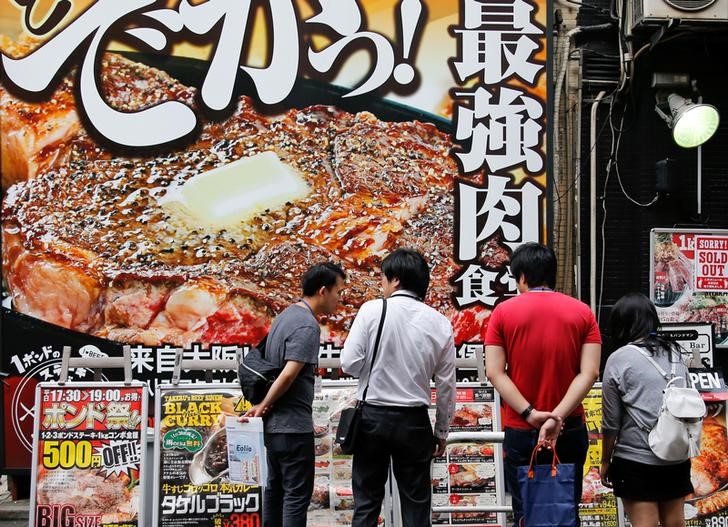(Bloomberg) -- Radiation from the crippled Fukushima nuclear plant is becoming the latest source of tension between Japan and South Korea, potentially undercutting Tokyo’s effort to promote the 2020 Olympics.
In recent days, South Korean officials have summoned a Japanese diplomat to express concern about a planned release of treated radioactive water into the ocean by Tepco, the plant’s owner. They’re also pushing for independent radiation checks at Olympic venues and proposing a separate cafeteria for their athletes, citing concerns about contaminated food.
The radiation dispute is threatening to prolong tensions between the two U.S. allies, who have spent much of the summer trading economic sanctions and diplomatic threats in a tit-for-tat dispute. The feud has exposed lingering mistrust and disagreements over Japan’s colonial rule on the Korean Peninsula.
South Korea’s radiation concerns contrast with signs of softening attitudes last week on the anniversary of Japan’s World War II surrender. Japan has also taken steps to show that its recent export controls won’t prevent legitimate sales to its neighbor, with South Korean media saying Tuesday that Tokyo approved a second license for one targeted material.
‘Under Control’
“It’s gone so far that neither side can back down,” said Hiroyuki Kishi, a former trade official turned professor at Keio University in Yokohama, adding that the disputed would probably continue “or get worse.” “I’m concerned that Japan may respond emotionally, because the Olympics are seen as very important.”
The issue of radiation at the Fukushima Daiichi nuclear plant, which was damaged in the March 11, 2011, earthquake and tsunami, has loomed over Tokyo’s Olympic bid from the start. Japanese Prime Minister Shinzo Abe threw his weight behind the campaign, assuring the International Olympic Committee in a 2013 speech that the plant was “under control” and would have no impact on the capital.
Now, Tokyo Electric Power Co. Holdings Inc. is preparing a release from on-site storage tanks, which are expected to fill up by 2022 with water treated to remove most radioactive elements. An adviser for the company has recommended a controlled release into the Western Pacific -- a common practice at other reactors around the world -- while the environmental group Greenpeace has urged keeping the water in storage.
Diplomat Summoned
South Korea summoned a Japanese diplomat on Monday, with the Foreign Ministry urging Tokyo to look into international organizations’ views on the matter and be more transparent about its plans.
Separately, the Korea Sport & Olympic Committee is set to make an official request that international organizations such as Greenpeace monitor radiation at Tokyo Olympic venues, the committee’s press officer, Lee Mi-jin, said. South Korean officials have also drawn up a plan to run a separate cafeteria exclusively for South Korean athletes, to ensure they don’t eat food from Fukushima, Lee said.
The Tokyo 2020 Organising Committee declined to comment on requests from other countries’ organizing committees. Recent data from volunteer organization Safecast shows that radiation levels in Tokyo are somewhat lower than those in Seoul.
For its part, South Korea is mulling whether to maintain an agreement on sharing military information with Japan. The decision could come after South Korean Foreign Minister Kang Kyung-wha meets her Japanese counterpart Taro Kono in Beijing Wednesday, on the sidelines of a trilateral meeting with China.
